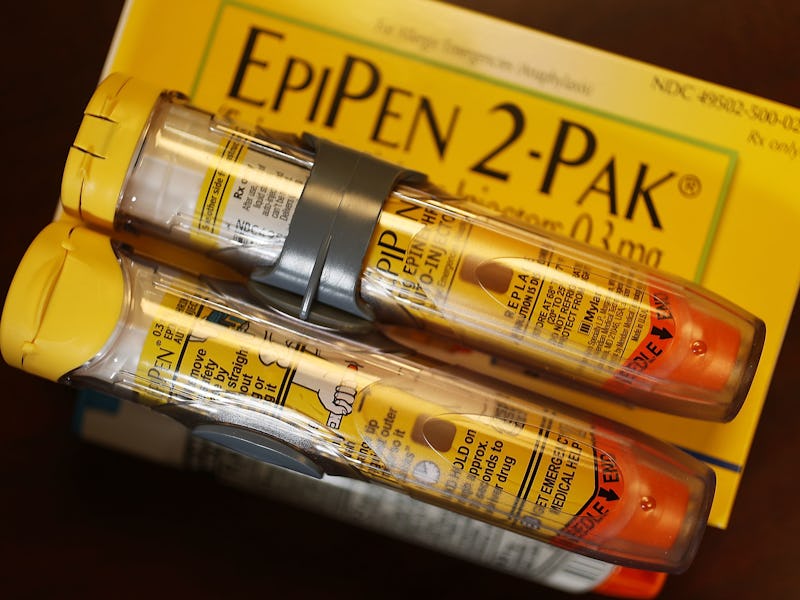Adrenaclick Is the Not-So-Secret EpiPen Substitute
This drug delivers the same emergency dose of epinephrine, at a fraction of the cost.

Long before EpiPen’s manufacturers settled a lawsuit allowing generic competitors into the adrenaline-injection market in 2012, there was a little-known alternative to the drug called Adrenaclick.
The auto-injection kit, manufactured by the Pennsylvania-based pharmaceutical firm Amedra, serves exactly the same purpose as the EpiPen — and it’s a hell of a lot cheaper. Right now, a two-pack of EpiPens costs over $600, while two Adrenaclicks can cost as little as $142 at Walmart, if you use a free coupon, according to GoodRx. The drug first launched in 2010, when it was still owned by Sciele Pharma; it was re-launched in 2013 by Amedra in 2013, months after Mylan, the company that manufacturers EpiPens, announced that it had reached an agreement allowing generic auto-injectors into the market.
Just like the EpiPen, the Adrenaclick delivers an emergency shot of epinephrine to a person’s thigh in a hurry. The contents of the two syringes are exactly the same: Epinephrine, a hormone also known as adrenaline, has long been used to prevent or counter the rapid swelling and itching that occurs when a person goes into anaphylactic shock. Both are auto-injectors — that is, they’re meant to be administered by the person undergoing the allergic attack.
The difference between the two products lies in the injector itself: To use the Adrenaclick, you have to remove two caps, while the EpiPen requires removing only one. The distinction is a slight one — but to users, it represents a difference of several hundred dollars. Because the EpiPen and Adrenaclick are technically two different drugs, pharmacists can’t substitute one for the other without a doctor’s prescription.
Public uproar about Mylan’s exorbitant EpiPen prices mounted this week, drawing comparisons to — and input from — notorious pharmaceutical price-gouger Martin Shkreli. Even Hillary Clinton got involved. But as exploitative as the company’s move was, it was far from unprecedented: Mylan, like so many other drug firms, was merely milking its monopoly for all it was worth before it came to an end.
Today, Mylan announced it would lower the cost of the EpiPen for some patients, attempting to provide users with some financial respite from the drug’s unrealistically high prices, which have been climbing by 15 percent, biannually, for the past couple of years. How many people this will actually help remains to be seen, but users can at least rest assured that they have alternatives.